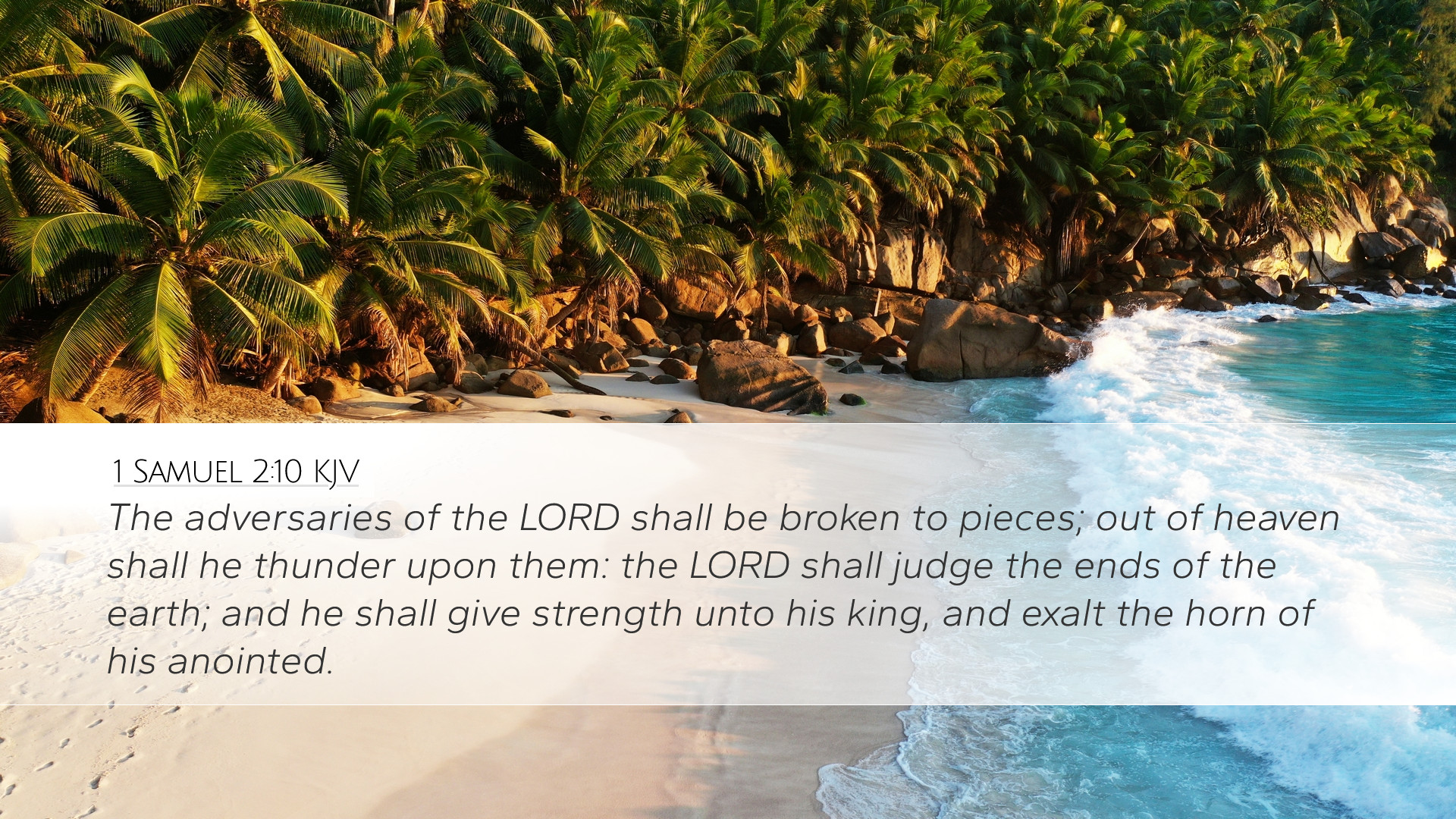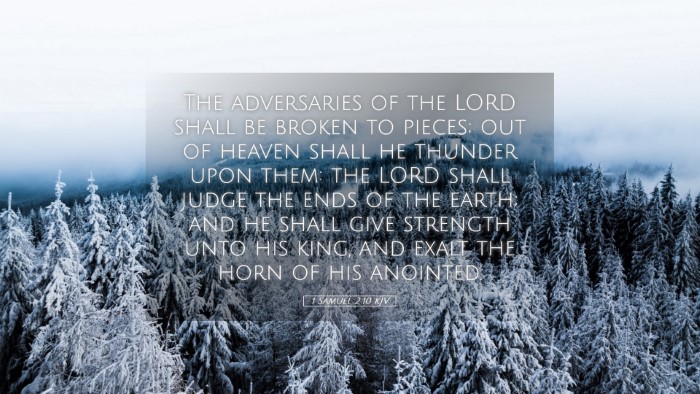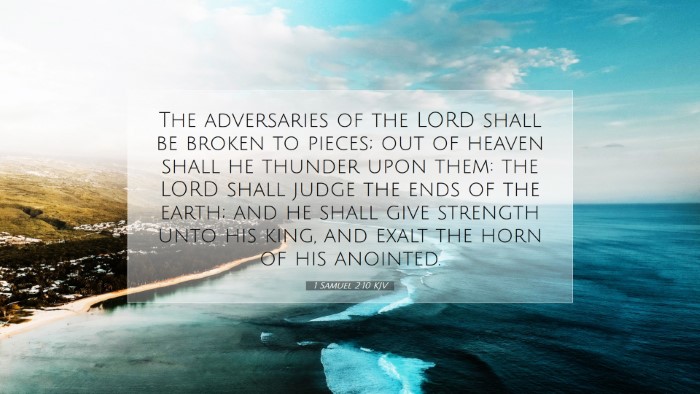Commentary on 1 Samuel 2:10
Verse: "The adversaries of the Lord shall be broken to pieces; out of heaven shall he thunder upon them: the Lord shall judge the ends of the earth; and he shall give strength unto his king, and exalt the horn of his anointed."
Introduction
This verse is situated within Hannah's prayer, which encompasses her praise and profound acknowledgment of God’s sovereignty. It addresses both the divine judgment against the adversaries of God and the exaltation of His chosen leader – a significant theme in the context of the establishment of monarchy in Israel.
The Adversaries of the Lord
Matthew Henry emphasizes that the enemies of God will ultimately face His wrath, illustrating the futility of opposing divine authority. He stresses that those who rise against God should be forewarned that they do so at their own peril, as God's power will prevail.
Albert Barnes elaborates on the concept of 'adversaries', suggesting that this includes not just individual adversaries, but broader systems and nations that stand in opposition to God's will. He asserts that God’s judgment is inevitable and encompasses all levels of opposition.
Adam Clarke adds depth by interpreting the phrase "broken to pieces". He reflects on the decisive nature of God’s judgment where total destruction comes to those who oppose His purposes, indicating that God does not merely incapacitate His enemies but completely annihilates their power and influence.
The Divine Judgment
The imagery of God thundering from heaven is potent. Matthew Henry indicates that this symbolizes divine intervention and power. God's voice, like thunder, is both awe-inspiring and terrifying, meant to invoke reverence and fear among those who oppose Him.
Albert Barnes also notes that the thundering signifies the purity and impartiality of God's justice, which operates beyond human understanding and is executed flawlessly from heavenly realms. It reassures believers that no matter the circumstances, God's judgment will prevail.
Adam Clarke underlines the necessity for the faithful to trust in God’s timing and His ultimate victory over evil. The reference to thundering from heaven serves as a reminder that God remains unfathomably above worldly concerns and operates in His own sovereign timeline.
The Lord as Judge
This verse culminates in God’s role as judge over the 'ends of the earth'. Matthew Henry reflects on the universality of God’s authority, suggesting that no realm escapes His notice or governance. His judgment extends not just to the people of Israel, but to all nations.
Albert Barnes underscores the assurance this gives to God’s people; it emphasizes the belief that even as worldly powers may rise and fall, God’s sovereignty remains unchallenged. The Lord’s judgment is a source of comfort for believers facing adversity.
Adam Clarke emphasizes that the phrase “the ends of the earth” illustrates the comprehensive scope of divine sovereignty. It implies that His justice is not limited by geography or time, calling upon believers to find strength in God’s everlasting rule.
The Anointed One
The latter part of the verse transitions to focus on God’s anointed king. Matthew Henry acknowledges that this reference points to the future establishment of kingship in Israel, reflecting God's plan for leadership amidst His people.
Albert Barnes emphasizes the significance of anointing, linking it to God's chosen leaders throughout history. The anointing is not merely a ceremonial act; it symbolizes divine empowerment for the responsibilities of leadership.
Adam Clarke explores the phrase "exalt the horn of his anointed", where the 'horn' symbolizes strength and power. This exaltation indicates God's support and empowerment of leaders who align with His will, contrasting with the fate of His adversaries.
Concluding Thoughts
This verse serves as a poignant reminder to the faithful about God's ultimate authority over all earthly powers. As Matthew Henry concludes, faith in God's judgment can bring profound comfort, while Albert Barnes points to the assurance that God will establish righteous leadership. Finally, Adam Clarke urges believers to trust in God's sovereignty, recognizing that despite the appearance of chaos, divine order will ultimately prevail.
1 Samuel 2:10 thus encapsulates crucial theological principles regarding God's justice, sovereignty, and the continuing importance of His anointed leadership in the life of His people.


